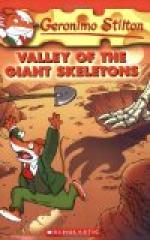“Right you are! The thing to do, then, as I viewed the situation, Bryce, was to acquire a body of timber north of Sequoia and be prepared for either eventuality. And this I did.”
Silence again descended upon them; and Bryce, gazing into the open fireplace, recalled an event in that period of his father’s activities: Old Bill Henderson had come up to their house to dinner one night, and quite suddenly, in the midst of his soup, the old fox had glared across at his host and bellowed:
“John, I hear you’ve bought six thousand acres up in Township Nine.”
John Cardigan had merely nodded, and Henderson had continued:
“Going to log it or hold it for investment?”
“It was a good buy,” Cardigan had replied enigmatically; “so I thought I’d better take it at the price. I suppose Bryce will log it some day.”
“Then I wish Bryce wasn’t such a boy, John. See here, now, neighbour. I’ll ’fess up. I took that money Pennington gave me for my Squaw Creek timber and put it back into redwood in Township Nine, slam-bang up against your holdings there. John, I’d build a mill on tidewater if you’d sell me a site, and I’d log my timber if—”
“I’ll sell you a mill-site, Bill, and I won’t stab you to the heart, either. Consider that settled.”
“That’s bully, John; but still, you only dispose of part of my troubles. There’s twelve miles of logging-road to build to get my logs to the mill, and I haven’t enough ready money to make the grade. Better throw in with me, John, and we’ll build the road and operate it for our joint interest.”
“I’ll not throw in with you, Bill, at my time of life, I don’t want to have the worry of building, maintaining, and operating twelve miles of private railroad. But I’ll loan you, without security—”
“You’ll have to take an unsecured note, John. Everything I’ve got is hocked.”
“—the money you need to build and equip the road,” finished Cardigan. “In return you are to shoulder all the grief and worry of the road and give me a ten-year contract at a dollar and a half per thousand feet, to haul my logs down to tidewater with your own. My minimum haul will be twenty-five million feet annually, and my maximum fifty million—”
“Sold!” cried Henderson. And it was even so.
Bryce came out of his reverie. “And now?” he queried of his father.
“I mortgaged the San Hedrin timber in the south to buy the timber in the north, my son; then after I commenced logging in my new holdings, came several long, lean years of famine. I stuck it out, hoping for a change for the better; I couldn’t bear to close down my mill and logging-camps, for the reason that I could stand the loss far more readily than the men who worked for me and depended upon me. But the market dragged in the doldrums, and Bill Henderson died, and his boys got discouraged, and—”
A sudden flash of inspiration illumined Bryce Cardigan’s brain. “And they sold out to Colonel Pennington,” he cried.




